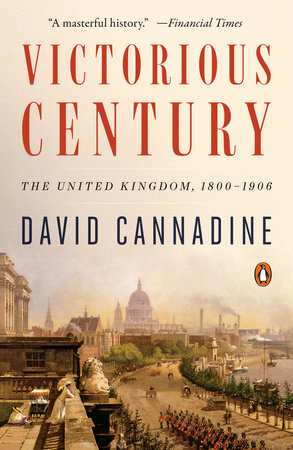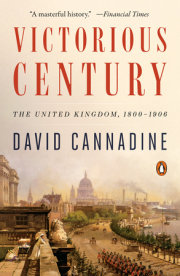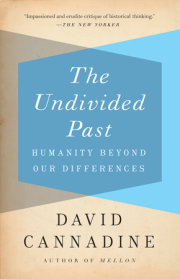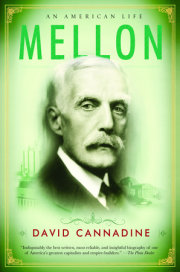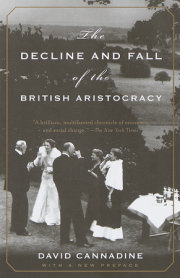PrologueHistory is not just about dates and events, which are often arbitrary and accidental: it is at least as much about processes, which do not begin and end with any such tidy temporality or calendrical precision. But dates do matter, because important events happen at particular times, and this explains why many histories of nineteenth-century Britain begin with the Battle of Waterloo in 1815 and end with the outbreak of the First World War in 1914. Such were the defining dates of Elie Halévy’s pioneering but incomplete
History of the English People in the Nineteenth Century, of David Thomson’s brief and bracing volume in the post-war
Pelican History of England, of the two volumes contributed by Sir Llewellyn Woodward and Sir Robert Ensor to the
Oxford History of England, and of the works by Norman Gash and E. J. Feuchtwanger for the later series published by Edward Arnold. Even today, in light of the recently observed bicentennial of the Battle of Waterloo, and of the hundredth anniversary of the Battle of the Somme, the idea that the British nineteenth century was defined by the triumphant conclusion of the Revolutionary and Napoleonic Wars (which ushered in the century of Britain’s global greatness), and the lesssure-footed beginning of what was originally known as The Great War (after which Britain ceased, according to Sellar and Yeatman in
1066 and All That, to be ‘top nation’), has much to recommend it. In between these two massive continental conflicts, so this argument runs, the United Kingdom largely (but not entirely) avoided European military entanglements, and as a result enjoyed a remarkable period of peaceand prosperity at home, and of engagement and hegemony elsewhere in the world. Hence the establishment of the so‑called ‘Pax Britannica’, the widespread contemporary belief that God conversed in English, and the undeniable reality that more people were speaking that Victorious Century language, and doing so in more parts of the world, than had ever been true before.
But the very fact that so many distinguished historians have already opted for these beginning and end dates is itself one very good reason for trying to define and delineate the British nineteenth century differently. Other scholars have begun their histories in 1783, with the rise ofthe Younger Pitt to power, or continued on until 1918, with the close ofthe First World War, and these more spread-outdates certainly allow for a fuller treatment of Britain’s ‘long’ nineteenth century. But in addition, and as Jürgen Osterhammel has recently pointed out, there aremany other ways of dating and defining that period, depending on the topics selected, the themes chosen, the subjects to be treated, and the part of the world to be concentrated on, while the deeper processes of change defy and deny any such precise temporal pinpoints. This bookseeks to break new ground, and to offer new perspectives, by beginning the British nineteenth century with the passing of the Act of Union in 1800, which brought into being the United Kingdom of Great Britain and Ireland, and by ending it with the general election of 1906, which witnessed a landslide Liberal victory that was the last great triumph of nineteenth-century progressive politics, but also brought to power the first great reforming government of the twentieth century. In 1800, and again in 1906, some contemporaries hoped, and others feared, they were living through revolutionary days and witnessing revolutionary events. But they might all have agreed that those two dates and thosetwo events had been and were of the first importance. Yet so far as I know, no one has attempted a history of nineteenth-century Britain bracketed and bounded in this way, which is as good a reason as anyfor trying to do so. Whether this enterprise has been worthwhile, ‘these pages must show’ (as Dickens wrote at the opening of
David Copperfield), or hope to show.
These two dates also serve to remind us of the extraordinary dominance and unique continuity of parliament in the political culture and public life of the United Kingdom and the British Empire. Across those years, the Westminster legislature was, with all its faults, drawbacks and limitations, to which reformers and radicals often drew attention, auniquely enduring institution of political authority, government legitimacy, popular sovereignty and national identity – in ways unmatched in Spain or France (where there were absolute monarchs, revolutions and republics), the United States (its democracy ruptured by civil war and the attempted Southern secession), Austria-Hungary (both nations’ parliamentsonly established in 1868), Italy or Germany (neither countrycompletely unified until 1871), Japan (without a constitution before 1889), Russia (without a Duma until 1905) and China (without a constitution before 1913). Small wonder, then, that both the permanence andthe adaptability of the British constitution and the British parliament were acclaimed and envied by many commentators from overseas. They were also lauded and celebrated in Britain itself, as the franchise was peacefully and progressively extended in 1832, 1867 and 1884–85, thereby successfully fending off any potential revolutionary threat. The constitution of the United Kingdom may have been unwritten, but as Edmund Burke had earlier appreciated, that had turned out to be a huge advantage: for it could be constantly adapted and adjusted, to take account of the extraordinary and transformative changes of the nineteenth century, whereas nations with rigid and inflexible written constitutions all too often had to embrace revolution, tearing everything up and starting again, while nations with no constitution at all also had to resort to similar violent means and desperate measures to obtain one.
In terms of its institutions of government and authority, then, nineteenth-century Britain was uniquely stable among the nations ofthe world. To be sure, there was nothing preordained or inevitableabout that stability, and fears of revolution would not be confined tothe years 1800 and 1906. But the undeniable continuity of its governingstructures is a very good reason for approaching the history of theUnited Kingdom via its parliament and its politics, which became the embodiment and expression of that stability, and for beginning andending that history with events that were, appropriately, both parliamentary and political. Moreover, the United Kingdom was not only remarkably stable in terms of its unwritten constitution and its institutions of government, but also in geographical terms, avoiding armed invasion, enemy occupation and the forced loss of lands, which were often the fates of continental countries. In 1906 Great Britain and Ireland encompassed precisely the same political boundaries and national borders that had been established in 1800. This was not true of Germany or Italy (which were nineteenth-century creations), Austria-Hungary (which had forfeited its Italian provinces), France (which had ceded Alsace-Lorraineto Germany), or Russia (which gave up Port Arthur to Victorious Century Japan), or of the United States (which was not so much losing territoryas spreading across an entire continent). To be sure, there were ‘invasion scares’ in the United Kingdom in the 1790s and 1800s, at mid-century, and again during the 1900s; but uniquely among the great nations of the world, its boundaries remained unchanged and unchanging throughout the nineteenth century. This combination of continued and unchallenged parliamentary supremacy, and successfully preserved territorial integrity, was remarkable and important, and lent some credence to the contemporary view that Britain was unique, exceptional and providentially blessed.
Yet for all its constitutional continuity and geographical cohesiveness, the nation over which parliament and the politicians, rather than the monarch, exercised sovereign power (though George III, George IV, William IV and Queen Victoria and Prince Albert would all have contested this assertion) was a complex, contested and composite place. England and Wales had been unified since Tudor times; England and Wales, together with Scotland, had been united as crowns in 1603, and as legislatures in 1707; and the union between Great Britain and Ireland followed just short of a century later, which meant, incidentally, that in its final and fullest form, the United Kingdom was a more recently created nation than the United States of America. When the mid-Victorians described their legislature as the ‘imperial parliament’, they meant that it passed laws for all the four kingdoms, whichwere appropriately represented in the central lobby of the recently constructed Palace of Westminster, where mosaics depicted their respective patron saints: St George, St David, St Andrew and St Patrick. Moreover, the United Kingdom of Great Britain and Ireland would turn outto be in many ways an unsatisfactory and unstable creation, as England was overwhelmingly dominant in terms of population, wealth and resources, and as the three nations of what was disparagingly regarded as ‘the Celtic fringe’ came on occasions to resent or repudiate such an unequal and asymmetrical Union. This was especially so in the case of Ireland, which was not only the last to be assimilated but also the least successfully, and (with the exception of the six Ulster counties) for the shortest span of time. This, in turn, had major implications for the politics of the nineteenth century, as the Tories and Conservativeswould use their customary electoral dominance in England to try to impose their will on the rest of the Union, whereas the Whigs and Liberals would need the votes of Ireland, Scotland and Wales to enable them to dominate England.
Copyright © 2018 by David Cannadine. All rights reserved. No part of this excerpt may be reproduced or reprinted without permission in writing from the publisher.

